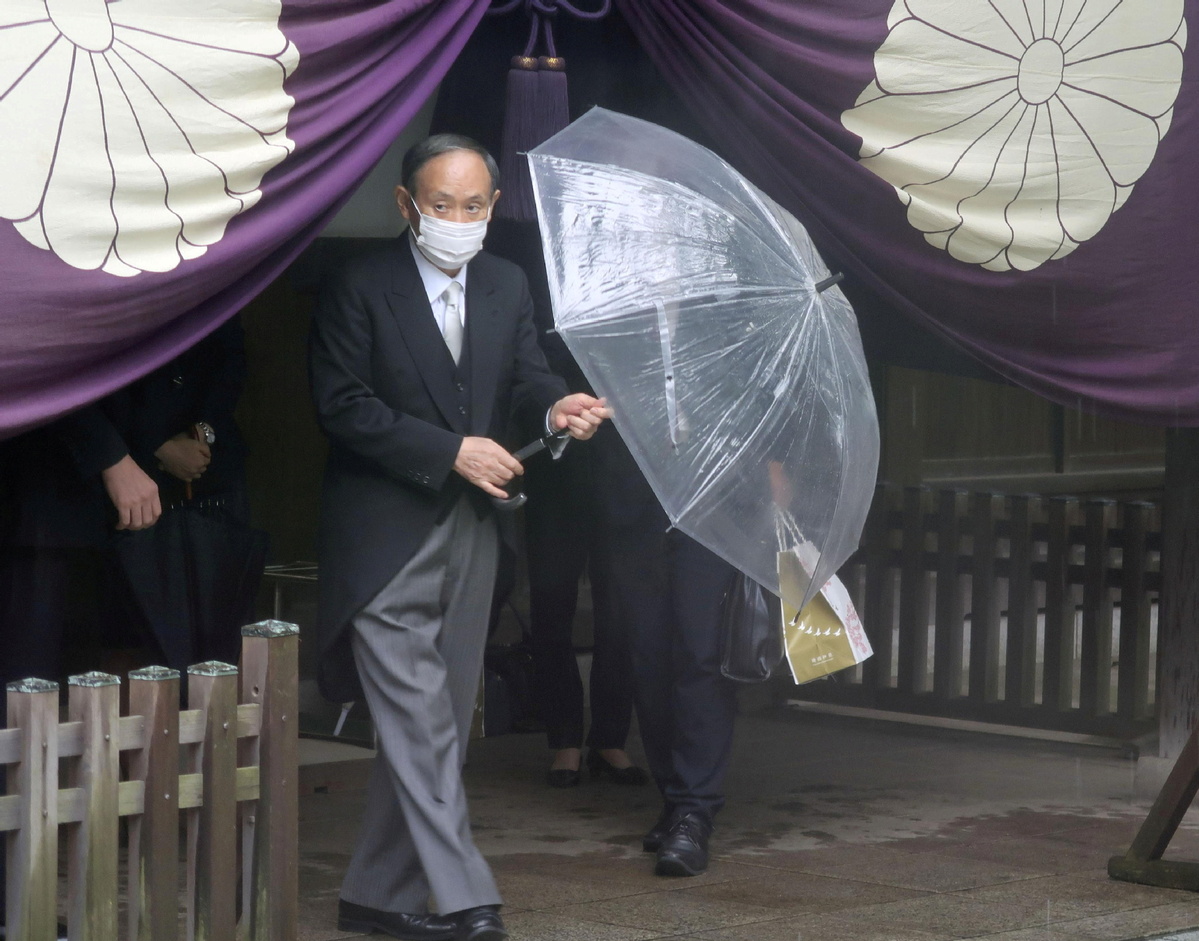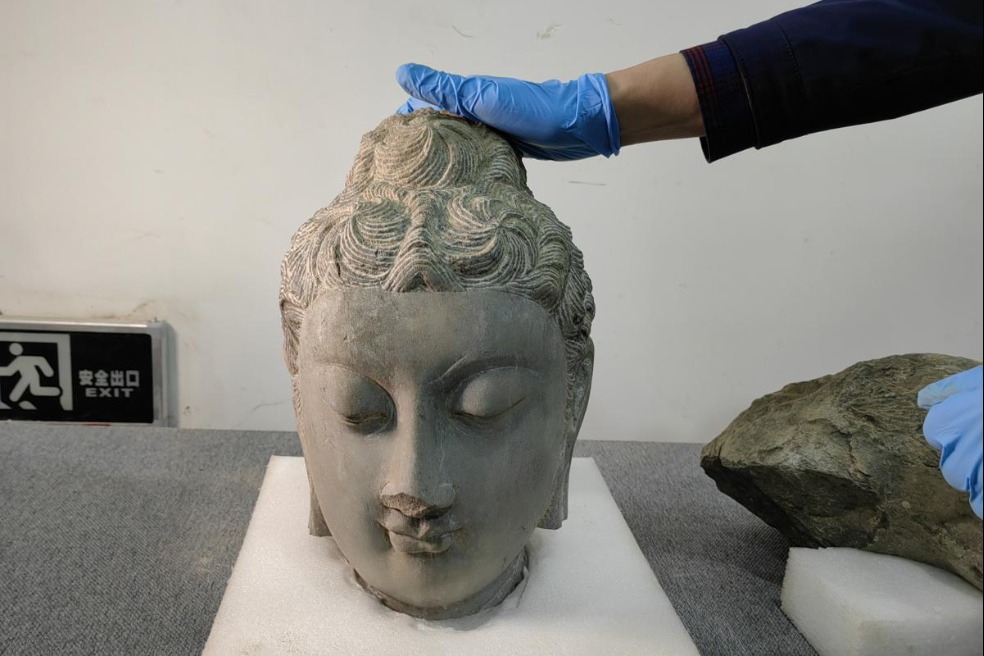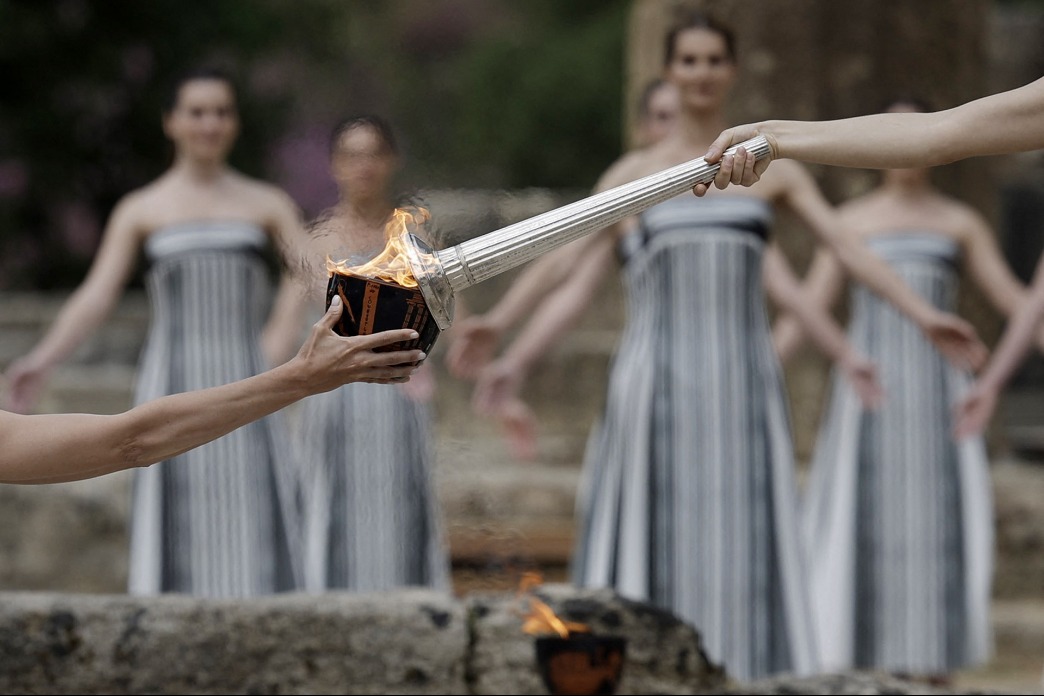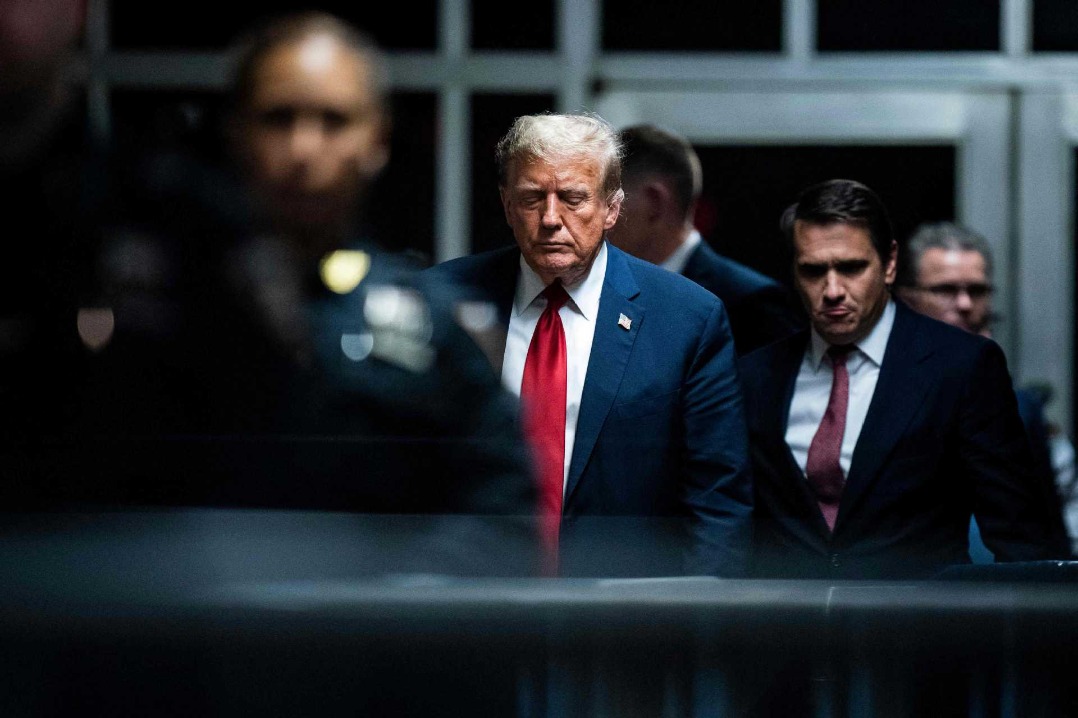Japan should not go down militarist path: China Daily editorial
chinadaily.com.cn | Updated: 2021-10-17 21:10

Yoshihide Suga, who just stepped down as Japanese prime minister, visited the Yasukuni shrine on Sunday.
His successor, Fumio Kishida, presented a ceremonial masakaki offering to the shrine where notorious World War II war criminals are enshrined.
An increasingly rightist Japan seeking to untie itself from the constitutional constraints of "exclusive defense" is viewed as dangerous by peoples in the neighborhood and beyond.
Yet Kishida seems set on that goal.
In a just-released interview with the Yomiuri Shinbun newspaper, he emphasized the need to revise Japan's National Security Guarantee Strategy "as soon as possible", and include in it developing the Self-defense Forces' capabilities for preemptive attacks on missile bases of potential enemies.
He also acknowledged that Japan keeps developing supersonic missiles and ballistic missile technologies, and said it's necessary for his country to "take all realistic possibilities into account".
In his inaugural speech on Oct 8, Kishida pledged to revise Japan's National Security Guarantee Strategy, National Defense Program Guidelines, and Mid-Term Defense Program, and enhance legislation as an economic security guarantee.
If the Abe administration was still clamoring over whether their country should be allowed to obtain the capabilities to strike enemy bases, the Kishida government looks determined to put it into practice. It is thus unrealistic to anticipate the Kishida cabinet will deviate from the political course set by Shinzo Abe, Suga's predecessor. On the contrary, it is eager to press ahead with what Abe kick-started.
For Japan's close neighbors, the victim countries of its past atrocities in particular, any attempts to twist and whitewash history, or substantially rearm an unrepentant Japan are worth vigilance. What relationship should be pursued with the present-day and future Japan will be a new challenge for these countries, including China.
Thanks to the four well-known political documents that helped normalize China-Japan relations and have since served to stabilize them in times of turbulence, as well as a general consensus on the importance and need for good neighborly ties, the relationship had appeared to be doing fine. But that appearance has continuously been undermined since the Abe government began pushing the envelope on history and security policies.
In their conversation on the telephone on last Friday, President Xi Jinping and the just-sworn-in Kishida both reiterated the significance of bilateral ties and the need to manage the differences between the two countries through dialogue. Xi highlighted the importance of honoring the political consensus that the two countries are each other's cooperative partner and don't constitute a threat to each other. Kishida also promised to work for a constructive, stable relationship that meets the demands of a new era.
Those are heartening words, but they must be matched with responsible actions.
























